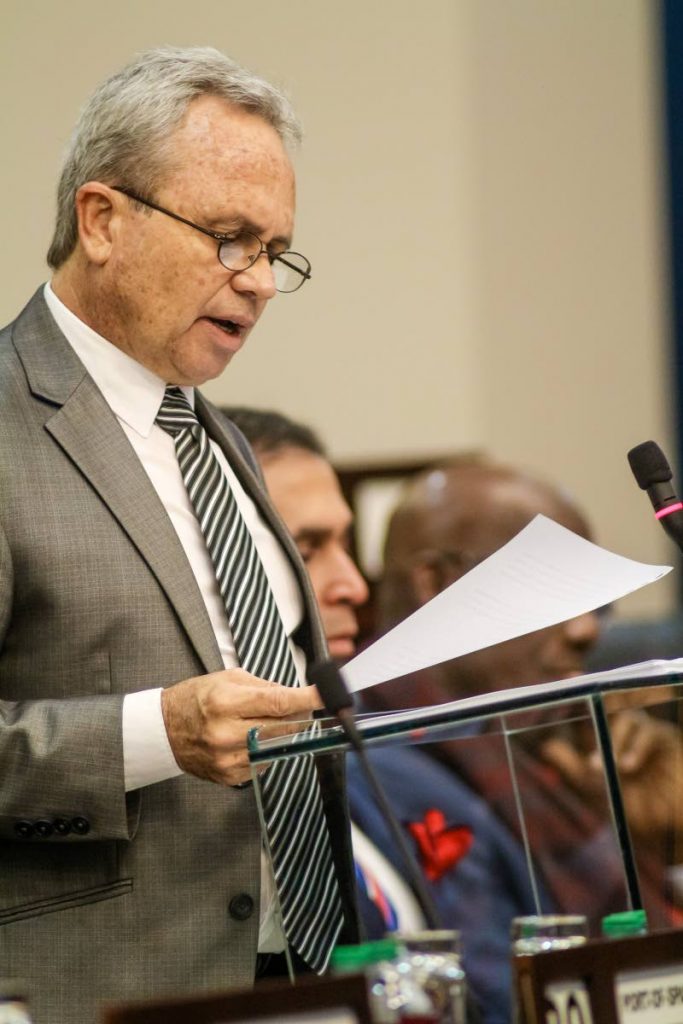Caution

Confidence, crime, external debt, foreign exchange constraints, a lack of economic diversification and government expenditure are all key factors stymying economic development, and which Government has not adequately tackled, some of the country’s top economists have said.
And with the mid-year review of the 2018 budget expected today, they are all curious to see how Finance Minister Colm Imbert will handle these concerns.
“We have to be mindful of where the economy is currently positioned – updated data from the International Monetary Fund (IMF) has forecast our real gross domestic product for this year at approximately $155 billion, after consecutive economic declines of -6.0 per cent and -2.6 percent in 2016 and 2017 respectively. The last time real GDP was in this vicinity was in 2006/2007, which means that our economic performance has regressed by over a decade,” Dr Valmikki Arjoon, a lecturer in economics and finance at UWI, St Augustine told Business Day.
Imbert, who has promised good news, is expected to report on increased revenues especially in the latter half of 2017 as natural gas projects including bpTT’s Juniper and Trinidad Onshore Compression (TROC) project, started production. But, Arjoon cautioned, this type of “growth” can be artificial and deceptive.
“We are simply reaping the benefits of capital expenditure and investment decisions taken by energy companies four years ago – a modest increase in gas production. This growth is simply a number as so far, it has not translated into creating value added, increasing productivity and our quality of life,” he said.
Non-energy sectors also continue to decline, as no meaningful investments have been made to enhance the productivity in these sectors in the last three years, he added, which may thus contribute to a continued decline, putting a dent in total revenue and growth expectations this year.
Lacklustre diversification is one of the biggest setbacks for the economy, at least according to Indera Sagewan-Alli.
“This last budget, the term ‘economic diversification’ was used the most it has ever been used. But yet we’ve seen the disbanding of the Economic Development Advisory Board, which was supposed to drive that. It begs the question of the commitment of the Government,” said Sagewan-Alli, executive director of the Caribbean Centre for Competitiveness.
She noted that while the previous PNM administration, under Patrick Manning, had a Vision 2020 roadmap and stuck to it — at least rhetorically, this administration’s Vision 2030 doesn’t seem to have to same impact.
“When you read it, it says almost nothing about economic diversification. There was some mention about alternative energy, but there has been no sign or movement in that direction,” she said.
It’s as if the Government is all about waiting on oil and gas to recover, she said.
Government has also not tackled crime in a meaningful way.
“Crime continues to worsen even though budget allocations have not been cut in any significant way and its worsened our competitiveness,” Sagewan-Alli said.
Dr Roger Hosein, head of the Economics Department at UWI, agreed that crime is probably one of the biggest hindrances to long-term economic growth.
“How is it that the State expects investors to have confidence in the economy with a murder rate which, if one were to project it for the rest of the year, could be between somewhere between 520 to 550,” Hosein said. The State, then, needs to get its act together.
“We are murdering a significant part of the labour force and in an economy where the population is projected to be in decline, this is an enormous concern because apart from the economic cost in productivity and the social consequence it is also a real impact on the labour force if the future,” he said. The State needs a more aggressive approach in order to give citizens, including himself, he said, peace of mind, if it wants to improve social and economic outlook, he said.


Comments
"Caution"